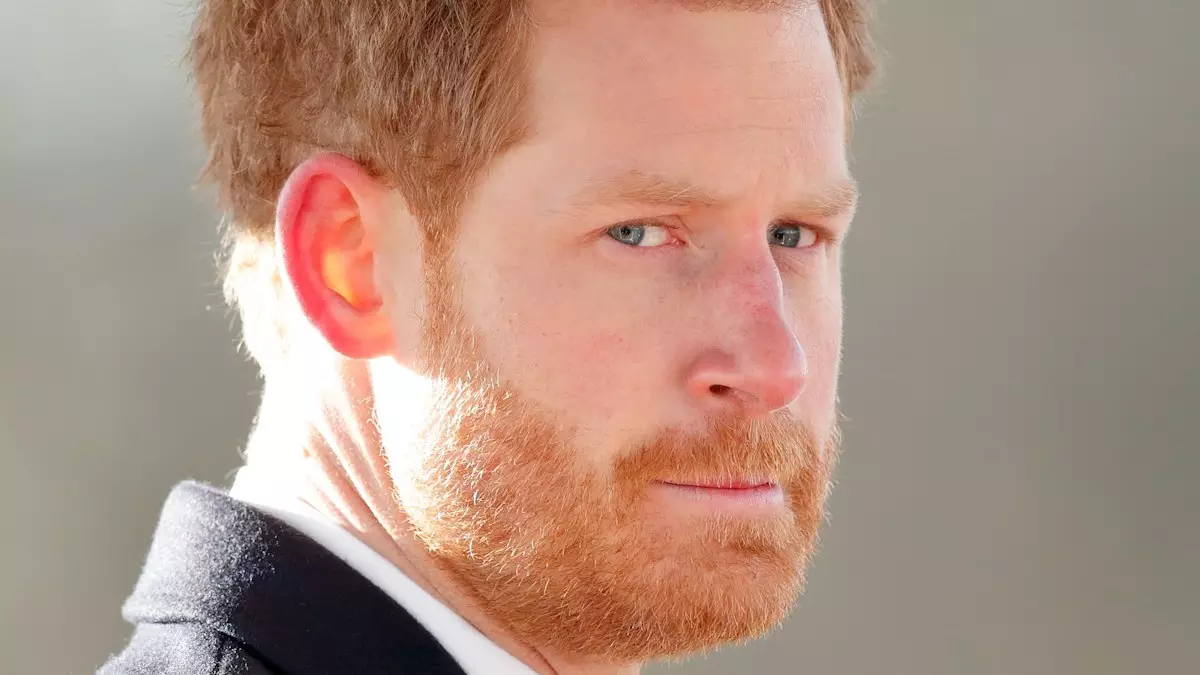Prince Harry’s ongoing legal challenges against Rupert Murdoch’s News Group Newspapers (NGN) are reaching a pivotal moment as the trial commences this week. The Duke of Sussex has leveled serious allegations against the tabloid giant, accusing it of unlawful information gathering including phone hacking and privacy violations. While Harry was initially expected to appear in London for the first day of proceedings, he has ultimately decided against this trip, choosing instead to testify later in February. This absence marks a significant decision from a public figure who has been embroiled in a document-heavy dialogue with the conventional media for years.
Harry’s claims are not just professional; they carry a deeply personal weight for him. The allegations suggest that both The Sun and the now-defunct News of the World have committed serious breaches of privacy from 1996 to 2011, a time frame where many incidents of illegal information acquisition reportedly occurred. Although NGN has denied these allegations vehemently, Harry’s determination to hold these entities accountable appears unwavering. This trial is more than a legal confrontation; it’s part of a broader narrative of media ethics and the responsibilities of journalists.
In a recent appearance at The New York Times’ DealBook Summit, Harry articulated his commitment to accountability within the journalistic realm. “I will be damned if those journalists are going to ruin journalism for everyone because we depend on it,” he declared, signifying a quest not just for his own justice but for the integrity of journalism as a whole. His words suggest that he believes the transgressions of a few can potentially harm the reputations of many, revealing an ethical dilemma facing modern media.
Unlike many other prominent figures involved in similar legal disputes who have chosen to settle, Harry seems driven to see his case through to its conclusion. High-profile personalities like Hugh Grant and Sienna Miller opted for settlement agreements, illustrating the complexities and risks associated with pursuing justice through the courts. In a notable post shared by Grant, he discussed the precarious balance between seeking accountability and facing significant financial repercussions, summing up the dangers of civil litigation. The choice to settle often hinges on the risk of losing everything by taking the battle to court, a specter that looms over Harry’s situation as well.
Strained Family Ties Amid Legal Disputes
The tensions extend beyond courtroom skirmishes, impacting Harry’s relationships, particularly with his father, King Charles III. Reports have indicated that Harry declined an invitation to stay at Buckingham Palace during previous visits, a move interpreted by many as indicative of ongoing familial strife since his departure from royal duties in 2020. This decision, echoed by a refusal of taxpayer-funded security, paints a picture of a family grappling not only with personal dynamics but also with the implications of Harry’s public stand against the media.
This condition has been amplified by issues surrounding security for Harry and his family. Since stepping back from royal obligations, significant controversy has surrounded their security provisions, with Harry contesting the legal decision that stripped him and his unit of taxpayer support. As of February 2025, another case will revisit these arrangements, signaling an endless cycle of litigation that illustrates how deeply intertwined these legal battles are with Harry’s identity and public life.
As Harry continues to navigate this labyrinth of legal proceedings, his steadfastness reminds us of the larger questions raised by these events. Are the responsibilities borne by journalists relaxed in the chaotic environment of tabloid reporting? Harry’s narrative is compelling; it encapsulates the challenges that arise from a culture of sensationalism that pervades the media landscape. His insistence that such misconduct must be exposed aligns with a call for reform that many believe is overdue.
Harry sees himself as a crucial figure in the quest for media accountability, famously stating, “I am the last person that can actually achieve [accountability].” This self-identification underscores a unique role he has carved out for himself—a position that blends his personal pursuit for justice with the larger ideological fight for a responsible press.
Prince Harry’s ongoing legal battle with News Group Newspapers is emblematic of a much larger discourse surrounding ethics and accountability in journalism. While his trial represents the individual’s search for recourse, it also reflects society’s enduring struggle to maintain the integrity of its information sources. The unfolding saga not only highlights tensions with family and the media but also calls for broad reflection on what accountability truly means in the modern age.

